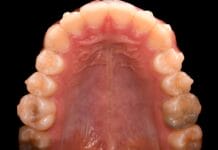In collaboration with international partners, researchers at the University of California San Diego School of Medicine have completed a study highlighting the potential of tirzepatide, a medication traditionally used to treat type 2 diabetes, as an effective drug therapy for obesity-related obstructive sleep apnea (OSA). OSA is a sleep disorder marked by repeated episodes of disrupted breathing due to blockages in the upper airway.1
OSA can lead to decreased oxygen levels in the blood and is associated with an increased risk of cardiovascular issues, such as hypertension and heart disease. It is estimated that OSA affects 936 million people globally.1
Currently, the management of OSA is limited to existing therapies, including continuous positive airway pressure (CPAP) therapy, which is focused on treating symptoms rather than the underlying disease. In some cases, adhering to these therapies is variable. Patients who can tolerate a CPAP have reported transformative benefits. However, a large portion of patients are unwilling or unable to tolerate such therapies.1
Additional therapies, such as mandibular advancement and hypoglossal nerve stimulation, are supported by limited clinical evidence. Alternatives for these therapies are needed for better long-term health outcomes.1
Weight reduction is an efficacious intervention for those suffering from obesity-related OSA. Bariatric surgery has been shown to favorably impact obesity-related OSA. However, the risks and cost of surgery are often a barrier.1
Pharmacotherapy for weight loss is being used more often based on advancements in this field of health care. However, the impact of weight loss due to pharmacotherapy, such as the use of tirzepatide, and its relationship to the management of OSA, has not been explored.1
Tirzepatide is a long-acting glucose-dependent insulinotropic polypeptide receptor and glucagon-like peptide-1 receptor agonist. The use of this drug in individuals with type 2 diabetes shows improvement in control of carbohydrates, lipid metabolism, and body weight, with a mean weight reduction of 22.5%. In individuals without type 2 diabetes, tirzepatide yielded a weight loss of 15.7%.1
The Study
The study involved two phase 3, double-blinded, randomized, controlled trials with 469 participants who were clinically obese and had moderate to severe OSA. These participants, recruited from nine countries, including the United States, Australia, and Germany, either used or did not use CPAP therapy. Participants received 10 or 15 mg of tirzepatide injections or a placebo over 52 weeks.1
The Results
The findings revealed that tirzepatide significantly reduced the number of breathing interruptions during sleep, a crucial measure of OSA severity, compared to the placebo group. Some participants even reached a point where CPAP therapy might no longer be necessary. The data suggest that addressing both sleep apnea and obesity with a single drug therapy is more effective than treating either condition alone.1
Additionally, the treatment improved other aspects related to OSA, such as reducing cardiovascular risk factors and aiding weight loss. The most common side effect reported was mild gastrointestinal discomfort.1
Limitations of this study include that it was not designed or adequately powered for cardiovascular outcomes such as mortality, stroke, or myocardial infarction. However, it was designed to assess the efficacy of tirzepatide on selected cardiometabolic risk factors and efficacy on sleep-disordered breathing.1
Additionally, it is difficult to determine which improvements are related to the resolution of obesity versus the resolution of OSA. Treatment withdrawal may lead to a slow weight rebound, which may then be associated with OSA rebound.1
Lastly, long-term adherence to medications may be influenced by cost, accessibility, and side effects.1
Conclusion
The study was designed to determine if tirzepatide provides a clinically relevant improvement in obesity-related OSA by targeting the underlying etiology. Indeed, tirzepatide did reduce the number of breathing interruptions during sleep. This study contributes to management strategies for OSA through weight management and offers other possible treatment options to achieve such goals.1
The next steps involve conducting clinical trials to investigate the long-term effects of tirzepatide.1
Before you leave, check out the Today’s RDH self-study CE courses. All courses are peer-reviewed and non-sponsored to focus solely on high-quality education. Click here now.
Listen to the Today’s RDH Dental Hygiene Podcast Below:
Reference
1. Malhotra, A., Grunstein, R.R., Fietze, I., et al. Tirzepatide for the Treatment of Obstructive Sleep Apnea and Obesity. N Engl J Med. Published online June 21, 2024. https://www.nejm.org/doi/full/10.1056/NEJMoa2404881










